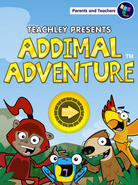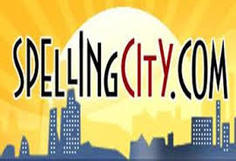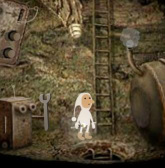Last Friday, I had the opportunity to revisit a program I had first seen a number of years ago.
The Vocational Independence Program at the New York Institute of Technology - VIP at NYIT - is now located on the campus of NYIT in Old Westbury, New York. This marks a new location from its original home in Central Islip, Long Island, when VIP first started in 1987.
VIP is one of only a limited number of programs nation-wide that provide a college-like experience for students who would not be able to manage the demands of a typical college program, but who can benefit from the post-secondary opportunity to improve their executive function, communication, social, independent living, and employment skills. It is recognized by the U.S. Department of Education as a
Transition and Postsecondary Program for Students with Intellectual Disabilities. This status makes it possible for students to apply for
federal financial aid, although the cost of the program (similar to a private college) means that even if a student qualifies for some aid, the program may be beyond the means of many families.
VIP students typically have autism spectrum disorders, mild cognitive impairment, or significant learning differences. Some students take credit courses at NYIT, leading to an associates degree after three years and some take a course or two on a non-matriculated basis, but most focus on building the skills that will help them to function as independent adults. There is also
a summer program for students considering VIP or planning to enter the following fall.
As noted by Walter Mayer, Associate Director of Admissions and Development, every student has a job coach, academic advisor, social counselor, independent living coach, and banking coach. By the third year of the three-year program, students are typically working three days per week at a VIP-sponsored internship with employers such as hotel chains, restaurants, retailers, hospitals, animal hospitals, and other businesses. Job placement support is also provided to graduates of the program. VIP notes that students finishing the program in 2017 had an 80 percent post graduation employment rate.
Students live on campus, in a dorm located at the adjacent State University of New York at Old Westbury campus, and move back and forth between the SUNY and NYIT campuses via shuttle buses. The residential aspect of the program is an important part of the skills-building that each student works on during their time at VIP.
While improved preparation and support programs at colleges have made college accessible to many students who might not otherwise be able to handle its social and academic demands, there are still many students whose disabilities make it difficult or impractical for them to be successful in a college program. Families want to give these students every opportunity to be successful in their personal and work lives and to give them the skills that will stay them them throughout their lives. The VIP Program is designed to help achieve these goals.













